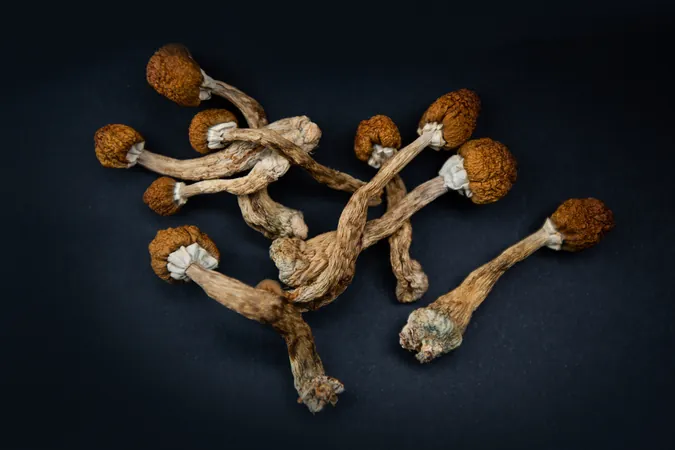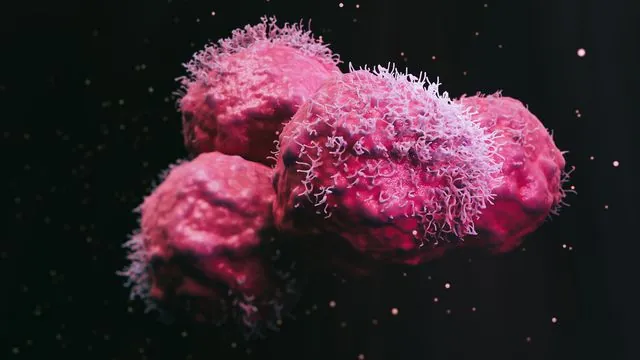
Breakthrough Study Reveals Psilocybin as a Viable Alternative to Traditional Antidepressants!
2024-09-23
Groundbreaking Study Overview
A groundbreaking study presented at the European College of Neuropsychopharmacology (ECNP) Congress in Milan has unveiled that psilocybin, the psychedelic compound found in "magic mushrooms," demonstrates long-term antidepressant effects that may rival those of conventional SSRIs (selective serotonin reuptake inhibitors) like escitalopram. The results were also published in the reputable journal *eClinicalMedicine*, suggesting potential for this natural substance to offer not just symptom relief but also enhanced overall well-being.
Research Insights
Lead researcher Tommaso Barba, a PhD candidate at Imperial College London, stated, “This is the first work to compare the long-term effects of these two treatments regarding overall well-being, not merely the alleviation of depressive symptoms.” Their Phase II, double-blind, randomized controlled trial followed 59 patients suffering from moderate to severe depression over six months. The results were illuminating: while both groups reported improved depressive symptoms after six weeks, those who received psilocybin revealed even more significant psychosocial advancements at the six-month mark.
Psilocybin’s Impact on Well-being
Participants who took psilocybin experienced enrichments in their sense of purpose and psychological connectedness compared to those on escitalopram. Crucially, Barba noted, “In prior research, we found that psilocybin could improve sexual drive, which is often diminished in SSRI patients.” This could signify a shift toward a more holistic treatment option for individuals affected by depression.
Comparing SSRIs and Psilocybin
SSRIs like Prozac, Paxil, and Zoloft are widely prescribed, with about one-third of patients not responding to these common medications. This opens the door for psilocybin as a compelling alternative for those who find conventional treatments unsatisfactory. "SSRIs are helpful, but not for everyone. Psilocybin appears to provide a tangible alternative that comes with fewer undesirable side effects," Barba asserted.
Expert Opinions
David Erritzoe, MD, PhD, the clinical director at the Center for Psychedelic Research at Imperial College, added a broader perspective on the implications of these findings, saying, “Enhanced connectedness and a greater sense of purpose can significantly improve an individual's quality of life and mental health in the long term. There’s a potential for psilocybin therapy to address depression symptoms while promoting an overall sense of well-being.”
Cautions and Concerns
However, Erritzoe cautioned that psilocybin's use as a treatment remains experimental and has not yet received regulatory approval in clinical settings. “It’s crucial to note that psilocybin is administered in controlled environments, contrasting sharply with recreational use, which can lead to unexpected and potentially adverse outcomes,” he emphasized.
Future Directions in Research
The results do come with important caveats. Johan Lundberg, MD, adjunct professor of psychiatry at the Karolinska Institute in Stockholm, underlined that while the study opens doors for future exploration, the approval of psilocybin for depression treatment still faces uncertainty. “Some future patients may prefer experiencing psilocybin treatment rather than SSRIs, although there's a valid concern regarding the intense psychological effects and emotional confrontations that psychedelics can induce,” he cautioned.
Conclusion
Despite the cautious approach needed in this realm of research, the clinical applications of psilocybin are gaining significant traction. These latest findings help pave the way for a deeper understanding of alternative treatment options for depression, particularly for those who have been overlooked by traditional SSRIs. The door is now open for more comprehensive investigations into how psilocybin therapy could provide holistic mental health solutions for those who are seeking a brighter path to recovery.



 Brasil (PT)
Brasil (PT)
 Canada (EN)
Canada (EN)
 Chile (ES)
Chile (ES)
 España (ES)
España (ES)
 France (FR)
France (FR)
 Hong Kong (EN)
Hong Kong (EN)
 Italia (IT)
Italia (IT)
 日本 (JA)
日本 (JA)
 Magyarország (HU)
Magyarország (HU)
 Norge (NO)
Norge (NO)
 Polska (PL)
Polska (PL)
 Schweiz (DE)
Schweiz (DE)
 Singapore (EN)
Singapore (EN)
 Sverige (SV)
Sverige (SV)
 Suomi (FI)
Suomi (FI)
 Türkiye (TR)
Türkiye (TR)